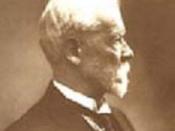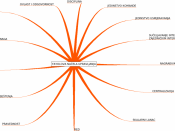Henri Fayol (1841-1925) was a French engineer who rose to prominence within the fields of coal mining engineering, mining geology and finally to management practice. His career began as a mining engineer. He then moved into research geology and in 1888 joined, Comambault as Director. On retirement he published his work; Administration Industrielle et Generale (1916); a comprehensive theory of administration which described and classified administrative management roles and processes then became recognised and referenced by others in the growing discourse about management. He is frequently seen as a key, an early contributor to a classical or administrative management school of thought. His theorising about administration was built on personal observation and experience which worked well in terms of organisation.
Fayol synthesised 14 principles for organisational design and effective administration. Although not completely applicable to some modern organisation structures but still many of these principles are still regarded as fundamentals.
Fayol's 14 principles are:
1)Division of labour: A principle of work allocation and specialisation in order to concentrate activities to enable specialisation of skills and understandings, more work focus and efficiency.
2)Authority (with corresponding responsibility): Fayol's second principle recognises the importance of authority in a business organisation. Authority is the right to give orders and the power to corresponding obedience. If responsibilities are allocated then the manger (post holder) needs the requisite authority to carry these out including the right to require others in the area of responsibility to undertake duties.
3)Discipline: The generalisation about discipline is that discipline is essential for the smooth running of a business and without it - standards, consistency of action, adherence to rules and values - no enterprise could prosper.
4)Unity of Command: In this principle Fayol advocates that a person has only one boss in order to avoid confusion and tensions within the...


